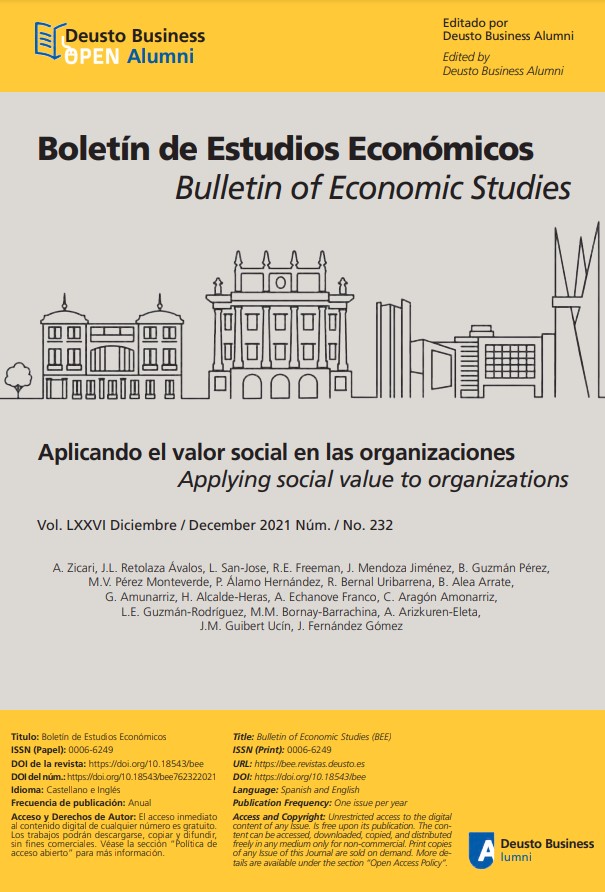Social accounting as a tool for decision making in an efficient and socially responsible public procurement environment
Abstract
During the last years, public procurement has evolved towards the consideration that it not only constitutes a means to satisfy the needs of goods or services, but also for the implementation of public policies. Through this article, social accounting is presented as a tool to evaluate, quantitatively and objectively, the social value generated by companies in the development of public sector contracts. All parties involved in public procurement are invited to reflect on this proposal.
Received: 29 October 2021
Accepted: 25 January 2022
References
Bergman, M. A., & Lundberg, S. (2013). Tender evaluation and supplier selection methods in public procurement. Journal of Purchasing and Supply Management, 19(2), 73-83.
Fons, D. M. (2009). Cláusulas sociales, libre competencia y contratación pública. Madrid, Spain: Fundación Alternativas.
Grandia, J., (2017). Public procurement in Europe. In: Ongaro, E., Van Thiel, S. (Eds.), Public Administration and Public Management in Europe. Palgrave MacMillan, Basingstoke, London, United Kingdom, pp. 363–380.
Retolaza, J. L., San-Jose, L., Ruiz-Roqueñi, M., Araujo, A., Aguado, R., Urionabarrenetxea, S., ... & González, L. A. (2015). Incorporando el valor social en las licitaciones públicas: un modelo integral. CIRIEC-España, Revista de Economía Pública, Social y Cooperativa, (85).
Uribarrena, R. B. (2020). Incrementando la eficiencia de las licitaciones públicas con la contabilidad social. CIRIEC-España, Revista de Economía Pública, Social y Cooperativa, (100), 239-276.
Uyarra, E., & Flanagan, K. (2010). Understanding the innovation impacts of public procurement. European Planning Studies, 18(1), 123-143.
License:
Works published in this journal are available since 2021 under the Creative Commons Attribution-NonCommercial 4.0 International license - CC BY-NC 4.0. Content prior to 2021 is not covered by the journal's current Open Access policy.
Authors' Rights:
Authors retain copyright over their work published in the Bulletin of Economic Studies and grant the Bulletin of Economic Studies non-exclusive rights to exploit the work for layout, publication, and dissemination purposes. This license allows the Bulletin of Economic Studies to distribute, reproduce, and disseminate the work on its platform and through other media, subject to the conditions outlined in this notice.
Readers' Rights:
Readers may read, download, print, search, share (copy, redistribute, or link to full text), or adapt (remix, transform, and build upon the material) the content, provided that:
- The materials are not used for commercial purposes.
- The original work is properly cited, including the name of the author and the source.
- Any modifications made to the original content are clearly indicated.
Commercial use of the materials is prohibited without the express permission of the authors. For clarity, commercial use is defined as any activity intended for financial gain or involving direct commercial exchange.
Conditions of Use:
The use of content must not infringe the rights of others or be used in a way that could damage the reputation of the author or the Bulletin of Economic Studies.
Responsibility for Content:
Authors are responsible for the content of their papers and the Bulletin of Economic Studies is not responsible for the opinions therein expressed.
More Information:
Open Access, Licensing, and Copyright Policy


.jpg)
.jpg)
.jpg)








